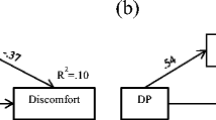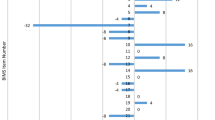Abstract
Student resistance can be a very important problem for the instructors in universities. Student resistance includes the conscious and preplanned behaviors towards the information presented to them in the classroom and the institutional practices. Typically, student resistance takes the form of passive or active non-compliance with roles and outputs expected of them as students. The purpose of this paper is to investigate the effects of hidden curricula on student resistance. The research was conducted on senior undergraduate students in a Turkish University, in the Department of Psychological Counseling and Guidance. Given the exploratory nature of this investigation, a case study methodology was employed. Data was collected from official documents, class observations, and interviews. The results of this research indicated that the students demonstrated resistance to some dimensions of the hidden and delivered curricula. Specifically, while the students showed resistance towards the delivered curriculum and ‘banking education’, they did not show similar resistance to symbolic violence and the ‘warming-up’ process.
Similar content being viewed by others

References
Alpert, B. (1991). Students’ resistance in the classroom.Anthropology and Education Quarterly, 22, 350–366.
Anyon, J. (1980). Social class and the hidden curriculum of work.Journal of Education, 162, 67–92
Apple, M. W. (1979).Ideology and curriculum. London: Routledge.
Apple, M. W. (1982a).Education and power. Boston: Routledge & Kegan Paul.
Apple, M. W. (1982b).Cultural and economic reproduction in education: essays on class, ideology and the state. London: Routledge & Kegan Paul.
Bailey, K. D. (1987).Methods of social research. (3rd ed). New York: The Free Press.
Bergenhenegouven, G. (1987). Hidden curriculum in university.Higher Education, 16, 535–543
Bourdieu, P. & Passeron, J. C. (1977).Reproduction in education, society and culture (Translated by R. Nice). London: Sage Publications
Bowles, S. & Gintis, H. (1976).Schooling in capitalist America. New York: Basic Books.
Brookfield, S. D. (1990).The skillful teacher. San Francisco: Jossey-Bass.
Burroughs, S. D., Kearney, P. & Plax, T. G. (1989). Compliance-resistance in the college students.Communication Education, 38, 214–229.
Chan, C. & Treacy, M. J. (1996). Resistance in multicultural courses.American Behavioral Scientist, 40, 212–221.
Clark, B. R. (1960). The cooling- out function in higher education.American Journal of Sociology, 65, 569–576.
Constantinople, A., Cornelius, R. & Gray, J. (1988). The chilly climate: fact or artifact?Journal of Higher Education, 59, 527–550.
Cornelius, R., Gray, J. & Constantinople, A. (1990). Student- Faculty interaction in the college classroom.Journal of Research and Development in Education, 23, 189–197
Cusick, P. (1992).The educational system: it’s nature and logic. New York: Basic Books.
Dreeben, R. (1968).On what is learned in schools. Reading, Mass: Addison-Wesley.
Erickson, F. (1984). School literacy, reasoning, and civility: an anthropologist’s perspective.Review of Educational Research, 54, 542–546
Erickson, F. (1986). Qualitative methods in research on teaching. In M. C. Wittrock (Ed.),Handbook of research on teaching (3rd ed., pp. 119–161). New York: Macmillan
Erickson, F. (1987). Transformation and school success: the politics and culture of educational achievement.Anthropology and Education Quarterly, 18, 335–358.
Everhart, R. B. (1983).Reading, writing and resistance: adolescence and labor in a junior high school. London: Routledge & Kegan Paul.
Evertson, C. M. & Green, J. L. (1986). Observation as inquiry and method. In M. C. Wittrock (Ed.),Handbook of research on teaching (3rd ed., pp. 162–213). New York: Macmillan
Freire, P. (1970).Pedagogy of oppressed. (Translated by M. B. Ramos). New York: Seabury Press
Fuller, M. (1982). Young, female and black. In E. Cashmore & B. Troyna. (Eds)Black youth in crisis. (pp. 87–99). London: George Allen & Unwin.
Gage, N. L. and Berliner, D. C. (1984).Educational psychology, (3rd ed.). Boston: Houghton Mifflin.
Gair, M. (2003). Socrates never took attendance: hidden curricula in a teacher preparation program. (Arizona State University Tempe, AZ: Unpublished phd thesis).
Giroux, H. A. (1981a).Ideology, culture and the process of schooling. Philadelphia: Temple University Press.
Giroux, H. A. (1981b). Hegemony, resistance and the paradox of educational reform.Interchange, 12, 3–26.
Giroux, H. A. (1983a).Theory and resistance in education. a pedagogy for the opposition. South Hadley, Mass.: Bergin & Garvey.
Giroux, H. A. (1983b). Theories of reproduction and resistance in the new sociology of education. a critical analysis.Harvard Educational Review, 53, 257–293.
Gordon, D. (1982). The concept of the hidden curriculum.Journal of Philosophy of Education, 16, 187- 198.
Güven, İ. (2000).Türkiye’de devlet, eğ itim ve ideoloji (The state, education, and ideology in Turkey). Ankara: Siyasal.
Hall, R. M. & Sandler, B. R. (1982).The classroom climate: a chilly one for women? Washington, D.C.: Project on the Status and Education of Women, Association of American Colleges
Helvacioğ lu, F. (1994). 1928’den 1994’e ders kitaplarında cinsiyetçilik (Gender discrimination in textbooks from 1928 to 1994) (İstanbul Üniversitesi Istanbul, Turkey: Unpublished master’s thesis).
Higginbotham, E. (1996). Getting all students to listen.American Behavioral Scientist, 40, 203–211.
İnal, K. (2004).Eğ itim ve iktidar: Türkiye ’de ders kitaplarında demokratik ve milliyetçi değ erler (Education and government: democratic and nationalist values in Turkish textbooks). Ankara: Ütopya.
Jackson, P. W. (1968).Life in classrooms. New York: Holt, Rinehart & Winston.
Kearney, P., Plax, T. G. & Burroughs, N. F. (1991). An attributional analysis of college students’ resistance decisions.Communication Education, 37, 54–67.
Kearney, P., Plax, T. G., Smith, V. R. & Sorensen, G. (1988). Effects of teacher immediacy and strategy type on college student resistance to on-task demands.Communication Education, 40, 325–342.
Köse, M. R. (2000/ 2001). Gender, branch and father’s occupational-status-based variations in school performance, verbal and numerical abilities of high school seniors in Ankara.Boğ aziçi University Journal of Education 18, 49–67
Köse, M. R. & Baç, G. (1999). Gender- based expectations, perceptions and attitudes of Turkish Teachers toward their male and female students.Eğ itim ve Bilim 23, 22–30
Lincoln, Y. S. & Guba, E. G. (1985). Establishing trustworthiness. In Y. S. Lincoln & E. G. Guba (Eds.)Naturalistic inquiry (pp. 289- 331). Newbury Park, CA: Sage.
Lindquist, B. (1994). Beyond student resistance: a pedagogy of possibility.Teaching Education, 6, 1–8.
Mac Leod, J. (1995).Ain’t no makin’ it: aspirations and attainment in a low-income neighborhood. Boulder, Colo.: Westview Press.
Margolis, E. (Ed) (2001).The hidden curriculum in higher education. New York: Routledge.
Margolis, E. & Romero, M. (1998). The department is very male, very white, very old, and very conservative: the functioning of the hidden curriculum in graduate sociology departments.Harvard Educational Review, 68, 1–32.
Margolis, E., Soldatenko, E. M. Acker, S. & Gair, M. (2001). Peekaboo: hiding and outing the curriculum. In E. Margolis (Ed)The hidden curriculum in higher education. (pp. 1–19). New York: Routledge
Martin, J. R. (1976). What should we do with a hidden curriculum when we find one?Curriculum Inquiry, 6, 135–151.
McFadden, M. (1995). Resistance to schooling and educational outcomes: questions of structure and agency.British Journal of Sociology of Education 16, 293–308
McFarland, D. A. (2001). Student resistance: how the formal and informal organizations of classrooms facilitate everyday forms of student defiance.American Journal of Sociology. 107, 612- 678.
McFarland, D. A. (2004). Resistance as a social drama: a study of change- oriented encounters.American Journal of Sociology. 109, 1249- 1318.
McKeachie, W. J. (1986).Teaching tips: a guide book for the beginning college teacher. (8th Ed.). Lexington, Mass: D. C. Heath & Company.
McLaren, P. (1994).Life in schools: an introduction to critical pedagogy in the foundations of education. (2nd ed.) New York: Longman.
McRobbie, A. (1991).Feminism and youth culture: from “jackie” to “just seventeen”. Basingstoke: Macmillan.
Nacon, H. (2005) Productive resistance: lessons from after school about engaged noncompliance.American Journal of Education, 111, 191–210
Öğ renci Seçme ve Yerleştirme Merkezi (Student Selection and Placement Center) (OSYM) (2004). 2004 student selection and placement examination results. Retrieved September, 13, 2004, from http://www.osym.gov.tr/ BelgeGoster.aspx?DIL=1&BELGEBAGLANTIANA= 1341
Pauly, E. (1991).The classroom crucible: what really works, what doesn’t, and why New York: Basic Books.
Sadker, M. & Sadker, D. (1994).Failing at fairness: how America’s schools cheat girls. New York: Charles Scribner’s Sons.
Sadker, D. & Sadker, M. (1986). Sexism in the classroom: from grade school to graduate school.Phi Delta Kappan, 67, 512–515
Spaulding, A. (1995, April).A qualitative case study of teacher-student micropolitical interaction: the strategies, goals and consequences of student resistance. Paper presented to the annual meeting of The American Educational Research Association, San Francisco, CA, USA.
Snyder, B. R. (1971).The hidden curriculum. New York: Alfred A. Knopf.
TC Başbakanlik (Office of the Prime Minister of Turkey) (2000).Ders kitaplarında cinsiyetçilik. (Gender discrimination in textbooks). Ankara.
Wexler, P. (1987).Social analysis of education: after the new sociology. London: Routledge & Kegan Paul.
Willis, P. (1977).Learning to labour: how working class kids get working class jobs. Farnborough, Eng.: Saxon House.
Yin, R. K. (2003).Case study research. design and methods. (3rd Ed.) Thousand Oaks, CA.: Sage Publications.
Author information
Authors and Affiliations
Corresponding author
Rights and permissions
About this article
Cite this article
Yüksel, S. The role of hidden curricula on the resistance behavior of undergraduate students in psychological counseling and guidance at a Turkish University. Asia Pacific Educ. Rev. 7, 94–107 (2006). https://doi.org/10.1007/BF03036788
Received:
Revised:
Accepted:
Issue Date:
DOI: https://doi.org/10.1007/BF03036788



